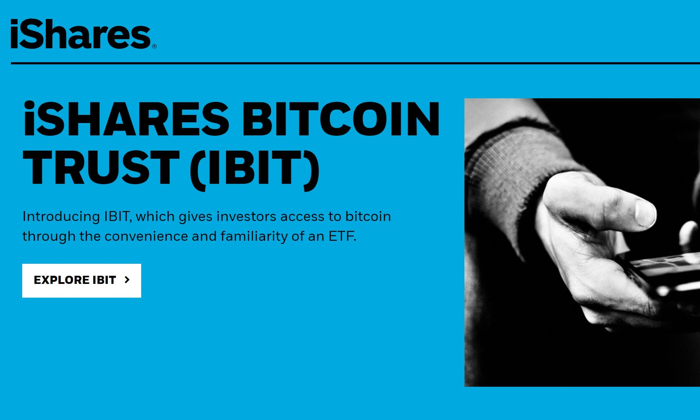The GENIUS Act amendments represent a significant effort in the landscape of crypto legislation, specifically focusing on enhancing anti-money laundering measures for stablecoins. As digital currencies gain traction, lawmakers are increasingly concerned about the potential for financial misconduct and the dominance of Big Tech stablecoins in the market. By addressing these critical gaps in financial integrity, the GENIUS Act aims to establish a balanced regulatory framework that safeguards consumers while fostering innovation. The recent revisions also emphasize the importance of oversight for foreign issuers, ensuring that all entities play by the same rules. Ultimately, these amendments are poised to transform how stablecoins are governed, ensuring that the intentions of the legislation address pressing issues in the evolving financial ecosystem.
The recent revisions to the GENIUS Act reflect a prominent shift in the regulation of digital currencies, primarily targeting the vulnerabilities in anti-money laundering practices associated with these assets. By reinforcing the legislative framework governing non-traditional financial players, lawmakers seek to curb the overpowering grip of large tech firms that wish to enter the stablecoin market. As the discourse surrounding financial compliance and technological influence heightens, these amendments aim to establish robust guidelines for stablecoins, ensuring that both emerging and established players adhere to standards of fiscal responsibility. This proactive approach not only aims to protect consumers but also to enhance the overall legal landscape for cryptocurrencies within the United States, thus contributing to a fair and equitable finance system. The ongoing commitment to reform signifies an important step towards achieving a secure and innovative financial future.
Understanding the GENIUS Act Amendments and Their Intent
The GENIUS Act amendments represent a significant attempt to address existing gaps in anti-money laundering legislation, particularly regarding stablecoins. With the rising popularity of digital currencies, lawmakers recognized the need for robust regulatory frameworks that ensure financial integrity and protect consumers. The recent revisions to the bill are primarily aimed at preventing non-financial companies, especially tech giants, from gaining dominance over the stablecoin market. By introducing stringent requirements for issuing stablecoins, the amendments encourage compliance with anti-money laundering measures and generate a safer financial ecosystem.
These amendments reflect a growing recognition of the associated risks that stablecoins pose, given their potential for facilitating illicit activities without proper oversight. The bill now specifies that any non-financial company wishing to enter the stablecoin market must adhere to strict guidelines regarding risk management, conduct ethical business practices, and protect consumer data. This approach not only limits the dominance of Big Tech in the digital currency sector but also enhances the overall regulatory environment.
The Role of Anti-Money Laundering in Stablecoin Regulation
Anti-money laundering (AML) measures are critical in the realm of stablecoins, as they help mitigate the risk of abuse in financial transactions. The GENIUS Act amendments bolster these measures by instituting tighter controls on who can issue stablecoins and under what conditions. By demanding clarity in financial operations and adherence to ethical standards, these regulations not only protect consumers but also foster greater trust in digital currencies. The focus on AML is essential in driving initiatives that seek to enhance the financial integrity of the crypto market.
Moreover, the integration of robust Anti-Money Laundering provisions within the GENIUS Act is pivotal for ensuring that all entities engaged in cryptocurrency transactions do so within a legal framework designed to deter financial crime. The amendments emphasize the need for proper oversight of foreign stablecoin issuers as well, which helps ensure that all digital currencies operating in the U.S. comply with stringent AML laws. Thus, these changes represent a concerted effort to harmonize stablecoin regulation with existing financial laws to promote transparency and government accountability.
Impact of Big Tech on Stablecoins Regulation
The growing influence of Big Tech companies in the stablecoin market raises significant concerns about fair competition and regulatory oversight. The amendments to the GENIUS Act specifically aim to limit the involvement of these giants in the cryptocurrency space. By prohibiting non-financial companies from issuing stablecoins without meeting rigorous standards, the legislation seeks to maintain a clear boundary between financial institutions and commercial enterprises. This approach will prevent companies like Meta and Google from exerting undue influence over the stablecoin landscape, potentially swaying regulatory frameworks in their favor.
Furthermore, the amendments serve as a protective measure for traditional financial institutions that may otherwise struggle to compete against the vast resources of tech behemoths venturing into the crypto space. By ensuring that all entrants to the stablecoin market are subject to the same standard of scrutiny, the GENIUS Act promotes a level playing field. The implications of these regulations stretch beyond mere market competition; they support the overarching goal of safeguarding consumer interests while bolstering the credibility of digital currencies in mainstream finance.
Consumer Protection and Ethical Standards in the GENIUS Act
One of the most critical aspects of the GENIUS Act amendments is the focus on consumer protection and ethical standards within the stablecoin ecosystem. Consumers need assurance that any digital currency they transact with is secure and subject to rigorous regulatory oversight. The revisions emphasize clarity in the provisions related to how stablecoins operate and the safeguards required for issuers, thereby reducing the risk of consumer misunderstanding and potential fraud. By clarifying that stablecoins do not enjoy federal insurance protections, the amendments provide consumers with realistic expectations and enhance the overall credibility of the cryptocurrency market.
Additionally, ethical standards incorporated into the GENIUS Act ensure that all companies, regardless of their size or sector, are held accountable for their practices. This encompasses everything from transparent business conduct to protecting user data. Establishing a robust framework that emphasizes ethical considerations will facilitate a healthier relationship between consumers and the growing digital currency market, instilling confidence as the industry continues to evolve.
Legislative Momentum and Industry Response to the GENIUS Act
The impending vote on the GENIUS Act reflects a significant turning point in U.S. crypto legislation, showcasing the urgency and importance of establishing a regulatory framework for stablecoins. Advocacy groups such as Stand With Crypto and The Blockchain Association have intensified their lobbying efforts to ensure that lawmakers pass this important bill. This active engagement from the crypto community underscores the need for clear rules governing cryptocurrency, facilitating innovation while protecting stakeholders in a maturing market.
Industry leaders, including Coinbase CEO Brian Armstrong, have voiced strong support for the GENIUS Act, emphasizing that regulatory clarity will empower Americans who have been eager to engage in legitimate cryptocurrency transactions. This legislative momentum is not only vital for addressing concerns surrounding financial integrity but also illustrates a broader commitment to create a balanced and informed approach to the burgeoning digital asset landscape. As stakeholders unite to advocate for responsible governance, the developments surrounding the GENIUS Act stand as a promising sign for the future of crypto regulation in America.
Potential Impacts on Foreign Stablecoin Issuers
With the introduction of the GENIUS Act amendments, foreign stablecoin issuers will face increased regulatory scrutiny in the U.S. market. The revisions require these entities to adhere to strict anti-money laundering provisions and be held accountable for their operational practices. By establishing these requirements, the amendments seek to ensure that foreign companies comply with the same standards expected of domestic firms, thereby reducing the risk associated with cross-border cryptocurrency transactions. This approach notably enhances the legitimacy and financial integrity of the stablecoin market in the U.S.
By addressing concerns over foreign oversight, the amendments emphasize the importance of compliance and protection not only for American users but also for international stakeholders engaged in stablecoin transactions. This creates an environment where all market players, domestic or foreign, operate under a unified set of regulations that uphold ethical standards and consumer protections. Consequently, these measures facilitate fair competition while promoting the growth of a dynamic, globally aware cryptocurrency market that prioritizes safety and reliability.
The Future of Stablecoins Post-GENIUS Act
As the cryptocurrency landscape continues to evolve, the GENIUS Act amendments pave the way for a more structured approach to stablecoin regulation. By balancing the need for innovation with a commitment to regulatory oversight, these amendments are anticipated to significantly shape the future of stablecoins in the U.S. market. The clear legal frameworks established by the bill create an environment conducive to sustainable growth and investment, providing firms with the guidelines required for responsible participation in the crypto sector.
Furthermore, the emphasis on collaboration between regulators and the cryptocurrency industry signals a proactive approach to addressing the challenges that may arise from stablecoins’ adoption. As companies conform to the regulatory requirements embedded within the GENIUS Act, the cryptocurrency landscape could witness increased transparency and a heightened level of trust among consumers and investors alike. This transformation holds the promise of fostering a mature stablecoin market where responsible innovation can thrive, all while ensuring compliance with essential financial regulations.
Implications for Consumer Awareness and Education
The passage of the GENIUS Act amendments not only introduces new regulatory measures but also underscores the importance of consumer awareness and education in navigating the complex landscape of stablecoins. As the legislature emphasizes consumer protection, it simultaneously highlights the necessity for individuals to understand the implications of engaging with digital currencies. Education initiatives focused on informing the public about what stablecoins are, how they work, and the risks involved are essential for empowering consumers to make informed decisions in the marketplace.
Moreover, the changes incentivize more financial institutions and educational organizations to develop resources aimed at demystifying stablecoins and cryptocurrencies in general. By fostering a better understanding of these assets, consumers can protect themselves against potential pitfalls and scams often associated with new financial technologies. Thus, as the GENIUS Act lays the foundational principles for stablecoin regulation, parallel efforts in consumer education will further enhance the protective measures, ultimately leading to a healthier and more informed marketplace.
The Need for Ongoing Evaluation of Crypto Legislation
As the new regulatory frameworks established by the GENIUS Act take shape, continual assessment and evaluation will be crucial to ensure their effectiveness in addressing the evolving landscape of stablecoins and cryptocurrencies. The rapid pace of technological innovation necessitates that lawmakers remain adaptable, revisiting and adjusting the regulatory measures as needed. Ongoing monitoring will help identify any gaps or emerging challenges that could compromise financial integrity and consumer trust in the marketplace.
Additionally, an inclusive dialogue between lawmakers, industry leaders, and the public will be vital in shaping the future of crypto legislation. Engaging stakeholders in discussions about the implications of regulated stablecoins will promote a sense of shared responsibility in fostering an innovative yet secure financial ecosystem. By prioritizing adaptive and responsive legislative efforts, the implications of the GENIUS Act may serve not only to stabilize the current landscape but also to lay the groundwork for future advancements in stablecoin regulation.
Frequently Asked Questions
What are the key updates in the GENIUS Act amendments regarding anti-money laundering?
The GENIUS Act amendments have introduced significant enhancements to anti-money laundering provisions, addressing previously identified gaps. These updates aim to ensure stricter regulatory oversight on stablecoin operations, particularly for foreign issuers, thereby strengthening accountability and financial integrity within the crypto landscape.
How do the GENIUS Act amendments impact stablecoins regulation?
The GENIUS Act amendments fundamentally reshape stablecoins regulation by implementing stricter conditions for issuance. These include mandatory frameworks for risk management and ethical conduct while also explicitly prohibiting non-financial companies, like Big Tech firms, from issuing stablecoins unless they comply with these stringent regulations.
What measures in the GENIUS Act amendments protect financial integrity in the crypto market?
The GENIUS Act amendments enhance financial integrity through several measures, including robust oversight of stablecoin issuers, provisions aiming to separate banking from commerce, and explicit consumer protection clauses. These amendments are designed to prevent financial misconduct and safeguard users from potential fraud within the crypto market.
What is the significance of the GENIUS Act amendments for Big Tech stablecoins?
The GENIUS Act amendments are particularly significant for Big Tech stablecoins as they prohibit publicly traded non-financial companies from issuing stablecoins. This aims to maintain a distinct separation between traditional financial services and commercial enterprises, ensuring that major tech companies do not exert undue influence over the crypto space and its regulatory frameworks.
How do the GENIUS Act amendments clarify federal insurance protections for stablecoins?
The revised GENIUS Act amendments clarify that stablecoins are not backed by federal insurance protections, which helps to mitigate consumer confusion regarding financial security. This transparency is crucial to prevent misunderstandings and potential risks associated with financial fraud in the cryptocurrency realm.
What advocacy efforts are underway regarding the GENIUS Act amendments?
As the vote on the GENIUS Act amendments approaches, various crypto advocacy groups, such as Stand With Crypto and The Blockchain Association, are actively mobilizing support. They urge constituents to contact their senators to promote regulatory clarity for stablecoins and encourage the bipartisan framework outlined in the bill.
How do the GENIUS Act amendments aim to prevent foreign influence in stablecoins?
The GENIUS Act amendments address concerns over foreign influence in the stablecoin market by implementing stricter oversight requirements for foreign stablecoin issuers. These measures aim to protect national security and ensure that all stablecoins operating within the U.S. adhere to rigorous regulatory standards and compliance protocols.
What consumer protections are enhanced in the GENIUS Act amendments?
The GENIUS Act amendments enhance consumer protections by establishing clear legal boundaries for stablecoin issuers and mandating ethical business practices. By doing so, they aim to ensure transparency in transactions and minimize risks associated with fraud, thereby fostering a safer environment for consumers engaging with digital currencies.
| Key Points | Details |
|---|---|
| Anti-Money Laundering Gaps | The GENIUS Act amendments enhance anti-money laundering provisions in response to concerns from lawmakers. |
| Foreign Stablecoin Issuers | Oversight is strengthened for foreign stablecoin issuers to ensure compliance with U.S. regulations. |
| Restrictions on Non-Financial Giants | Publicly traded, non-financial companies must meet strict conditions to issue stablecoins, aiming to separate banking from commerce. |
| Consumer Protections | The amendments clarify that stablecoins are not insured by the federal government, mitigating risks of consumer misunderstanding. |
| Crypto Advocacy Efforts | Crypto groups are actively campaigning for support of the bill ahead of the Senate vote, emphasizing the need for regulatory clarity. |
Summary
The GENIUS Act amendments significantly enhance regulations surrounding stablecoins to address critical gaps in anti-money laundering and ensure consumer protection. With these amendments, the bill aims to prevent dominance by non-financial giants in the stablecoin market while promoting traditional financial institutions’ role. As the vote approaches, support for the bill reflects a growing consensus on the need for clear frameworks within the digital currency sector.
The recent amendments to the GENIUS Act are reshaping the landscape of the cryptocurrency market, particularly in the realm of stablecoins. As the US Senate prepares for an important vote, these revisions aim to bridge critical gaps in anti-money laundering regulations while bolstering financial integrity across the sector. The GENIUS Act amendments emphasize the need for strict oversight to prevent non-financial giants, such as Big Tech companies, from monopolizing the stablecoin space. With growing concerns surrounding crypto legislation and the safety of digital assets, these changes highlight a pivotal move towards clearer regulatory frameworks. This legislative push not only addresses current vulnerabilities but also aims to ensure a fair and secure environment for all stakeholders involved.
The recent updates to the GENIUS Act, which focuses on digital currency governance, signal a significant shift in the regulatory approach towards stablecoins. By introducing measures to tackle anti-money laundering issues and enhance protection for consumers, these amendments serve as a crucial response to the challenges faced within the cryptocurrency industry. Efforts to regulate the influence of major tech firms in the digital currency realm further underline the importance of maintaining financial integrity. As crypto legislation evolves, the emphasis on responsible practices becomes even more critical, particularly in mitigating risks associated with foreign stablecoin issuers. The forthcoming Senate vote represents a vital step in establishing a robust framework for the future of cryptocurrency.















